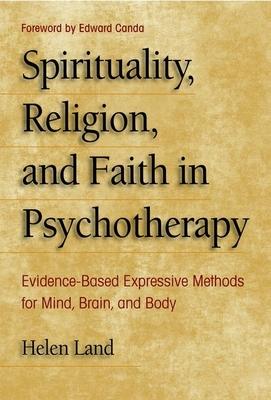For decades, psychotherapy has avoided addressing the religious or spiritual experience of clients; but as society grows and changes so do the problems, wants, and needs of individuals seeking help-toA continue to overlook the sacred could be to miss out on the greatest source of a client's resiliency or the very root of her problems. There is a measurable value in addressing the psycho-spiritual needs of clients, both as a means of practicing cultural-competence in regards to the continually growing diversity among people seeking help, and for the sacred's connection with many contemporary issues including trauma and bereavement.
Helen Land uses current research in interpersonal neurobiology to show readers how to integrate religious, spiritual, and faith content into psychotherapy through the use of evidence-based expressive practices. Using an approach appropriate for both theistic and atheistic clients, this book will be an invaluable resource for addressing the holistic health of individuals dealing with trauma, bereavement, incarceration, and addiction as well as counseling for returning veterans.
